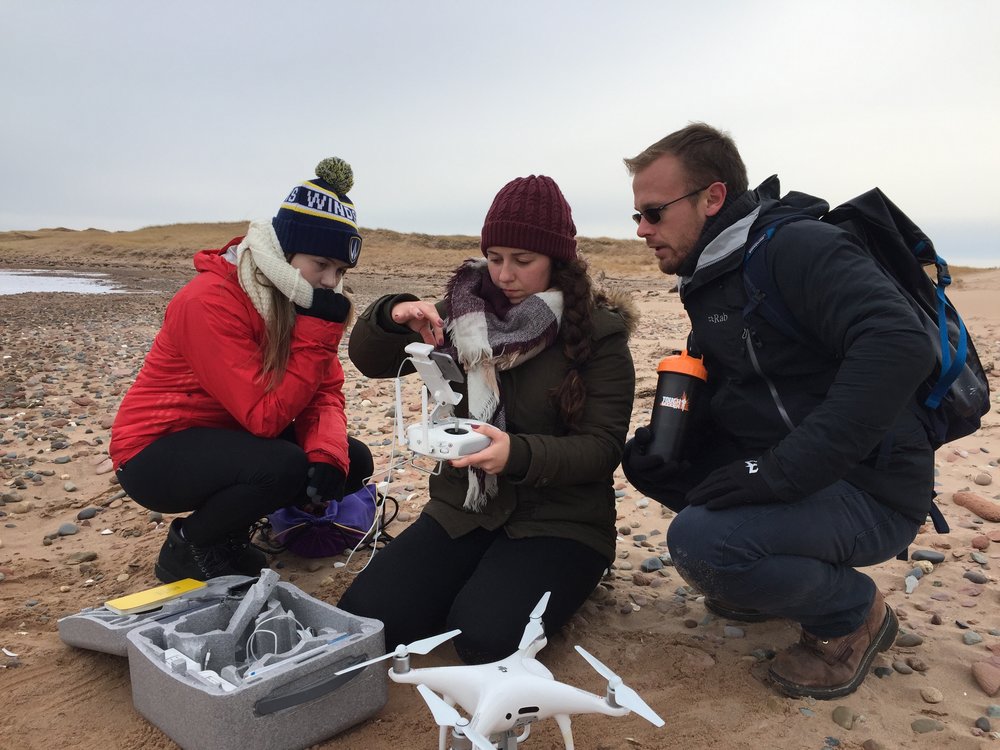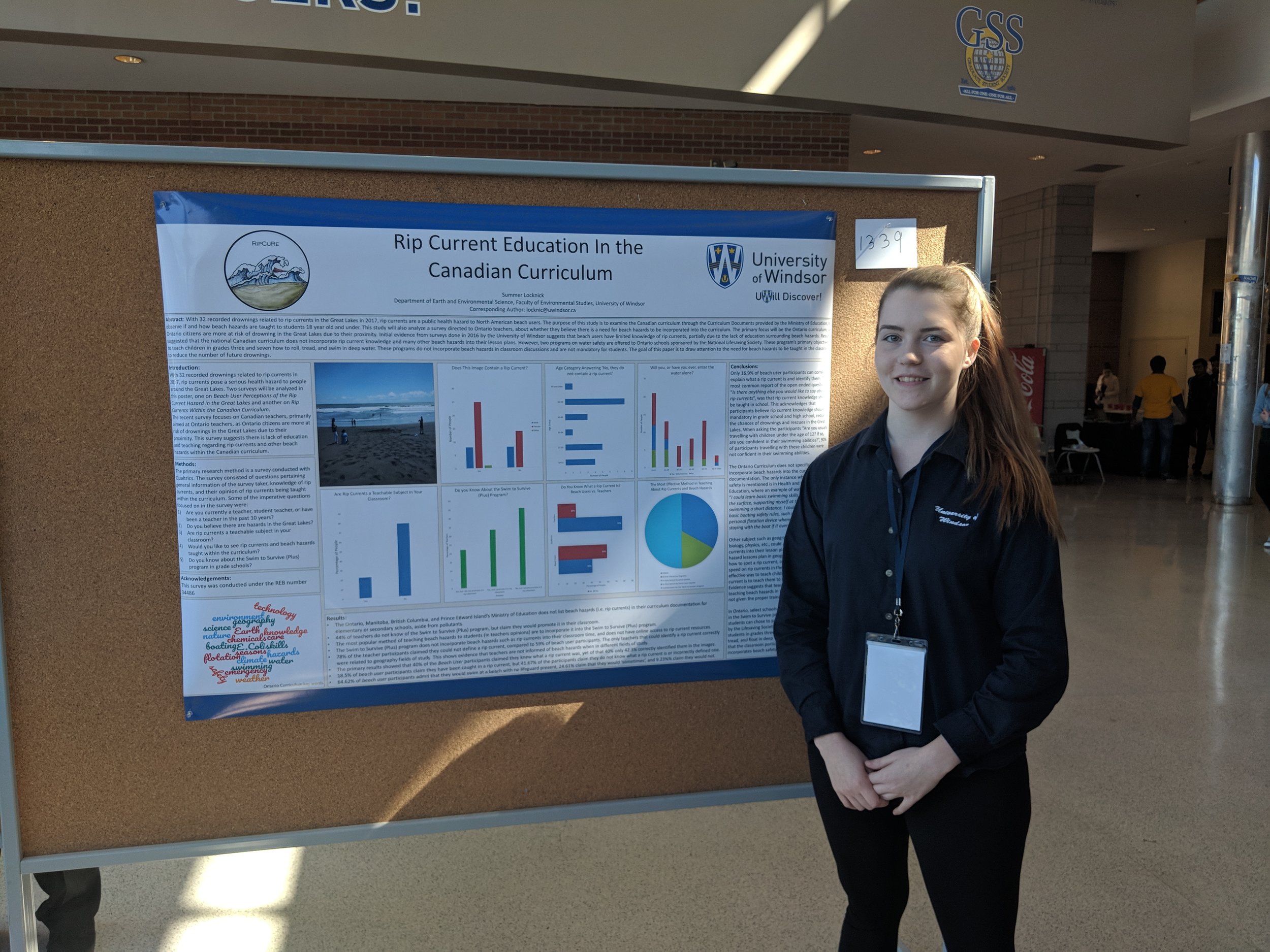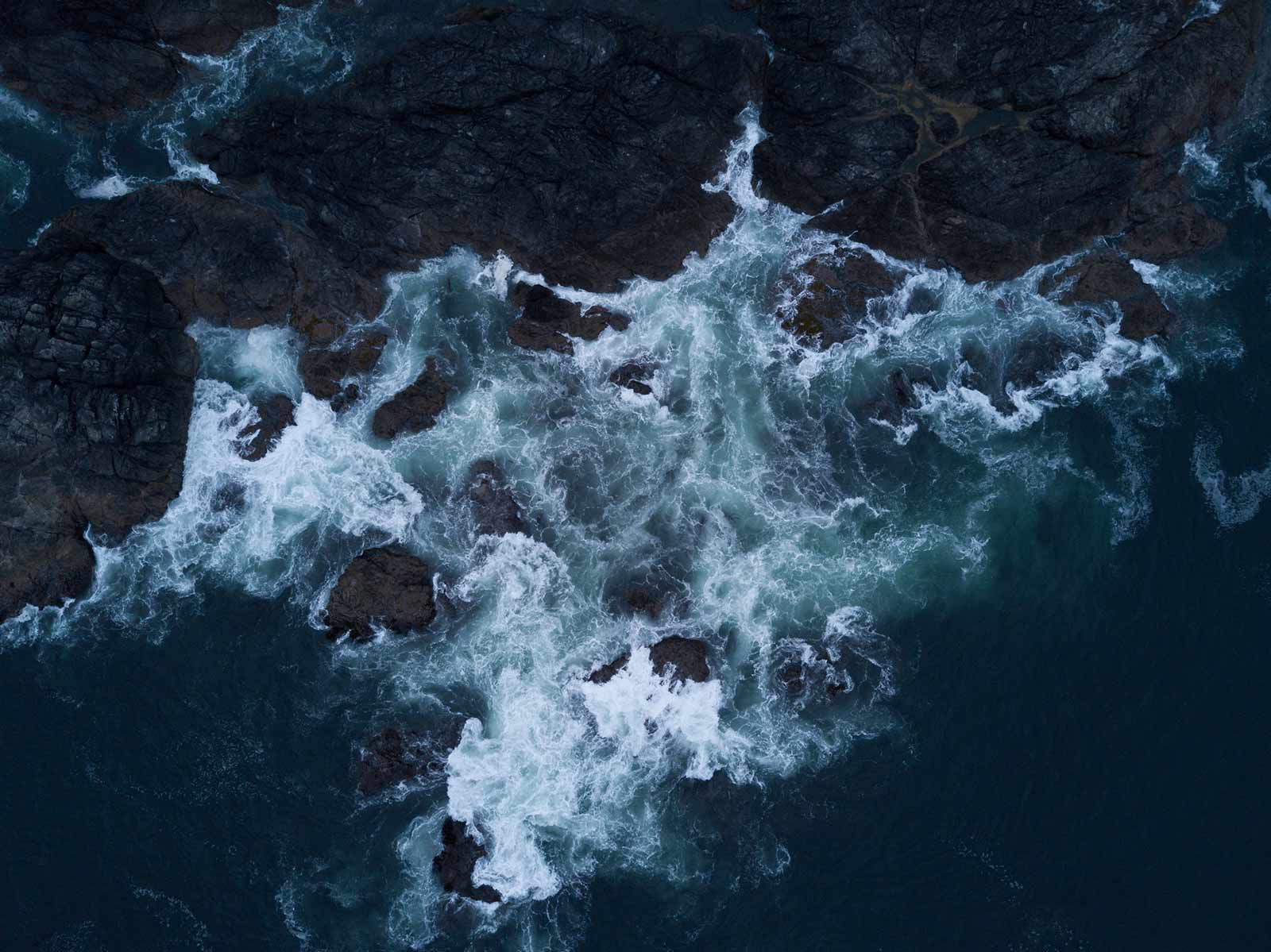Rip currents (also known as rips and rip tides) are a common hazard on beaches worldwide that develop when breaking waves across a wide surf zone vary alongshore. Rips are believed to be responsible for a majority of rescues and fatalities on beaches around the world. In Canada alone, it estimated that 80% of all drownings and rescues are associated with rips.
Rip current researcher Summer Locknick knew that while we understand how and where rips form, the physical dimensions of the hazard, we understand very little about the social dimensions of the hazard. She undertook this project to understand how people use the beach and when and why they decide to enter the water, to build the knowledge needed to reduce the number of drownings.
This research can benefit all coastal communities in Canada and worldwide, where both locals and tourists are at risk of drowning due to rip currents. Prince Edward Island regularly has a large number of tourists that travel to Cavendish Beach and Brackley Beach through the summer months. The outcomes of this research will be the basis for new management strategies to reduce the number of drownings.

What the Project Accomplished with the Support of the Fathom Fund
500 surveys were administered at popular beach destinations on the north shore of Prince Edward Island, Cavendish Beach and Brackley Beach. Both beaches have known rip currents near the main access point to the beach, and despite warning flags and a lifeguard program, there have been several drownings in recent years. It was designed to give a better understanding of what people know about the rip hazard and how they interact with it.
The survey results showed that tourists, who have less coastal knowledge than locals, are more at risk from rip currents. They also showed that most beach users did not notice the surf flag which denotes the level of risk that day. The team shared their recommendation to relocate the flag to a more visible spot with Parks Canada.
The director of sport and recreation and physical activity for the Department of Health and Wellness of PEI, John Morrison, visited Summer Locknick in the field during the research phase to learn about the project. He nominated her for the 2019 Drowning Prevention Award – Research, which she won. The research also caught media attention and Locknick was interviewed by several outlets about the project, including on the morning CBC Radio show.
“Public crowdfunding from Fathom Fund allowed the general public to become more interested in my research,” said Locknick, “Fathom Fund gave me the platform to reach a high number of people, who otherwise might not have known about the study entirely.”

Summer Locknick
Summer Locknick, a Master of Earth Science student at the University of Windsor, has been studying rip currents for three years while also completing her Bachelor’s of Environmental Studies. Under the supervision of Dr. Chris Houser, Dean of Science at the University of Windsor, she is continuing her research of the rip current hazard in Prince Edward Island. Globally, rip currents account for approximately 80% of drowning deaths and rescues. This research’s objective is to reduce the number of drownings related to rip currents across Canada and the world, where the research will provide guidance for the need to implement, improve or enhance existing beach safety material, and to identify the type and format of pre-trip information that will assist in reducing the number of rip-related fatalities.


Parks Canada Partnership
Parks Canada recognized the research initiatives proposed by this project and provided the backdrop for this study at Cavendish Beach and Brackley Beach, P.E.I. and accommodation to the researchers for the duration of the study in P.E.I. Thank you to Parks Canada for this support.



